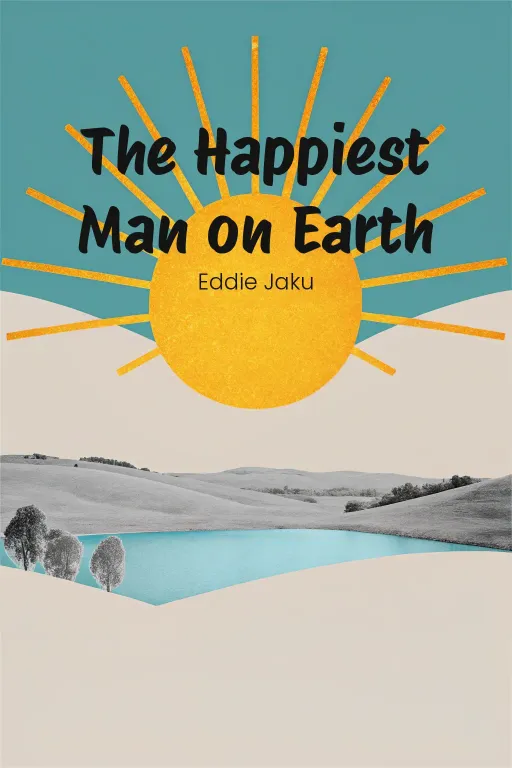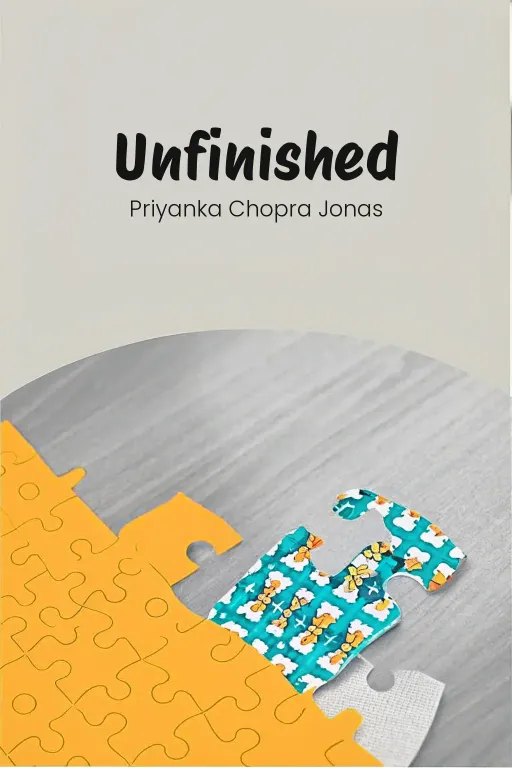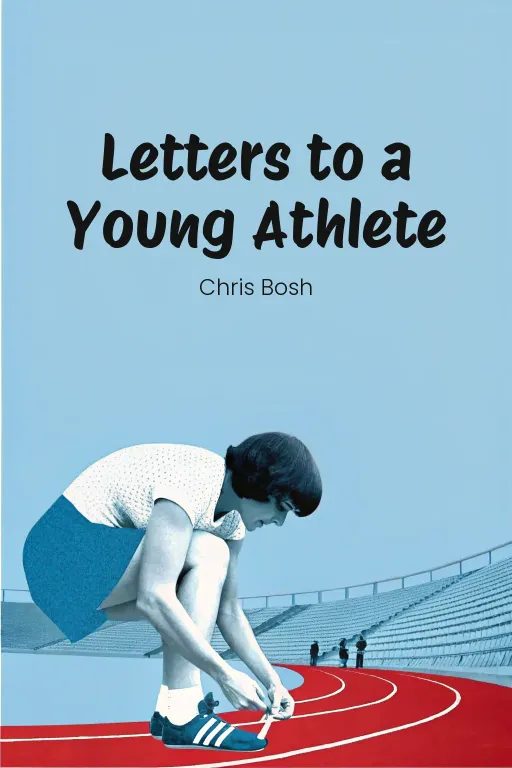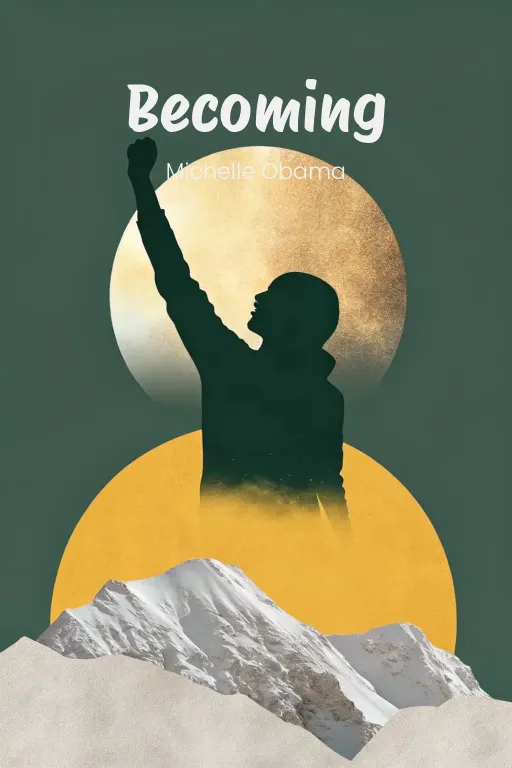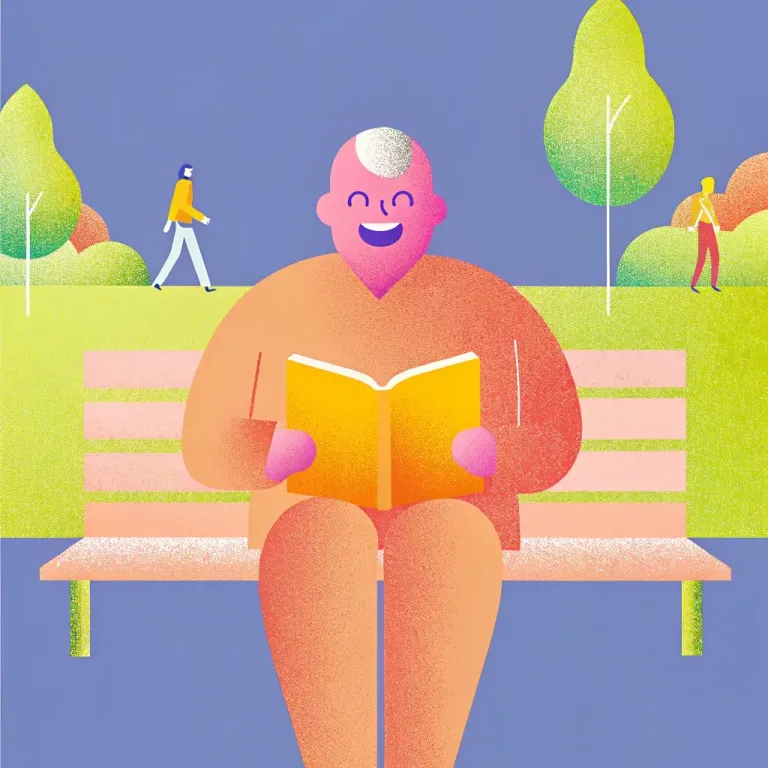
Find Joy: A Holocaust Survivor's Guide
Podcast by Beta You with Alex and Michelle
The Beautiful Life of an Auschwitz Survivor
Introduction
Part 1
Alex: Hey everyone, welcome back. So, let's start with a question: What does happiness actually mean to you? Is it, like, a feeling? A goal to reach? Or maybe, is it a conscious decision you make? Michelle: Right, now picture trying to discover that happiness after losing everyone, your home, and almost your own life. That's the situation Eddie Jaku faced, and he didn't just keep it to himself—he made it his mission to share it with the world. Alex: Exactly. Eddie Jaku's memoir, “The Happiest Man on Earth”, it's his story of surviving the worst of history. Think about the Nazi's betrayal, the sheer cruelty of Auschwitz and Buchenwald, and losing everyone he loved. But you know, it is not just a book about suffering. It's really about how Eddie, against all odds, chose to rebuild, find love again, and teach future generations about kindness, resilience, and hope. Michelle: So, today, we're diving into three main themes from his life. First, we're looking at his incredible resilience. How did Eddie manage to keep his spirit alive, even in the face of unimaginable brutality? Then, we'll explore the transformative power of kindness – those moments of connection and humanity that literally kept him alive. And finally, we'll discuss his lasting legacy, and what his life can teach us about finding joy, even when surrounded by cruelty and loss. Alex: Yeah, Eddie's story isn't just about making it through. It's a roadmap for living a life filled with hope and unwavering kindness, despite everything.
Resilience in the Face of Adversity
Part 2
Alex: Alright, Michelle, let's jump right into resilience today. Eddie’s story screams resilience, doesn't it? But it's clear that his incredible capacity for it wasn't just there one day. It was something built over time, right? Michelle: Exactly. Alex: Absolutely, Michelle. Eddie's resilience really started with his upbringing. He grew up in a loving family in Leipzig that “really” valued kindness and strength, especially when things got tough. His father, Isidore, was super important here. Remember Isidore’s motto? “If you’re lucky enough to have more, you should help those who have less.” It wasn't just about charity, it was about building a mindset, where community and shared humanity are what bring people together, even when things are hard. Michelle: That’s beautiful, but it feels almost too idealistic, given what Eddie faced during Kristallnacht. How do you hold onto family values like kindness when your neighbors are smashing your windows? The betrayal he must've felt… Alex: Oh, that betrayal must’ve been devastating, no question. Eddie had to grow up quickly when he saw that his Germany, the country he loved as a kid, had turned against people like him. Kristallnacht wasn't just physical destruction; it was a “real” shock to the system. He was arrested, beaten, and his parents’ home was destroyed. Even in that mess, you see the seeds of his resilience. Michelle: How so? Alex: Well, look at how he reacted. Eddie didn’t just give up. He instinctively started to adjust to this awful new reality. He saw that survival wasn’t just about physically getting through it, it was about mentally adapting to the unthinkable. That ability to adapt became a key part of his resilience, even later when he faced the horrors of Buchenwald and, eventually, Auschwitz. Michelle: Okay, let’s talk about that. If Kristallnacht was Eddie’s entry into loss and suffering, those camps were another level. Stripped of identity, starving, enslaved. Is resilience “really” enough in conditions like that? Or is survival just pure luck at some point? Alex: That’s a totally valid point, Michelle. And Eddie himself probably would say that luck played a role—after all, who lived and who died in those camps often came down to the guards. But that doesn’t mean Eddie’s resilience didn’t matter. Like, take his mantra: “Tomorrow will come if you survive today.” Michelle: That’s not just a mantra; that’s survival psychology right there. What does it “really” mean? Alex: It’s a way of refocusing. By telling himself that surviving one day, just one more day, was enough, Eddie was practicing a simple version of mindfulness. Instead of feeling overwhelmed by everything, he broke it down into smaller pieces. That helped him get through even the death marches, where conditions were just unbelievably awful. Michelle: The death marches! Those were basically designed to kill prisoners through exhaustion, if the camps hadn’t already. Eddie writes about walking miles in the freezing cold with no food. But what “really” stands out is his comradeship with the other prisoners. Alex: Exactly. Resilience isn’t just about individual strength; it’s also about drawing strength from those around you. Eddie talks about how he and others whispered words of encouragement to each other during the death marches. Think about that—when it would’ve been so easy to just isolate yourself to survive, these men held onto each other. That gave them something the Nazis were trying to destroy: their humanity. Michelle: It’s like defiance in its quietest, most powerful form. There’s another relationship that was key to Eddie’s survival: his friendship with Kurt Hirschfeld in Auschwitz. Alex: Oh, Kurt. That bond was truly amazing. In the chaos of Auschwitz, where hope was almost gone, Eddie and Kurt formed a partnership that started out of need but was kept alive by genuine care. They encouraged each other, shared scraps of food, and kept each other accountable for surviving. Michelle: It’s almost ironic, isn’t it? Here they were in a place designed to erase humanity, and yet that’s where Eddie found one of his most meaningful connections. Alex: Right. And I think that’s the point. Resilience isn’t built alone—it’s built by the relationships we make and the values we hold onto, even when things are terrible. Eddie and Kurt’s friendship showed that even when everything else is taken away, the freedom to connect with another person is still there. Michelle: I agree. But resilience isn’t just about surviving the unimaginable; it’s also about what happens next. Eddie didn’t just survive. He rebuilt his life after being freed, and that’s where his resilience “really” shines. Alex: Totally. After he was freed, Eddie was in an empty world—so much of his family was gone, and his home wasn't home anymore. But he made the choice to start over. Marrying Flore Molho was a huge part of that. They moved to Australia together, basically sailing away from the shadows of Europe. Michelle: Sailing away… only to arrive in Sydney during one of its wettest winters ever. The irony, right? Alex: True! But instead of giving up, Eddie kept being resilient. He quickly found work and started building a life filled with stability and kindness, the things that had been taken from him during the war. Michelle: And that’s the crux of it, isn’t it? Resilience isn’t just about enduring the worst; it’s about having the strength to thrive afterward, to get back what once seemed impossible. Alex: Exactly. Eddie’s ability to rebuild wasn't just about his strength. It was a conscious act of fighting back against the forces that tried to break him. His resilience wasn’t just about surviving; it was about renewal. And through his story, he’s given that to all of us.
The Power of Kindness and Human Connection
Part 3
Alex: So, Michelle, Eddie's resilience wasn't just about getting through those horrors, right? It really set the stage for his lifelong mission to spread hope and kindness. Michelle: Exactly! And that brings us to what I find so extraordinary: the power of kindness and human connection. It wasn't just a side note, Alex—it seemed to be the whole point of his life, wouldn't you say? Alex: Absolutely. You know, a lot of Eddie's survival, and his eventual happiness, came down to the kindness he both gave and received. Even surrounded by unbelievable cruelty, those little moments of empathy were huge in keeping him going and reminding him that humanity still had some good in it. Michelle: Like that story early on when he and his father were trying to escape Nazi Germany, right? That woman who helped guide Eddie across to the Dutch border... that always sticks with me. Just the simple act of steadying him, holding onto his belt. It was so small, but meant so much, didn't it? Alex: It really did. Think about it, that woman risked everything to help a complete stranger, a young Jewish boy fleeing a regime that would punish anyone who defied them. And she still chose to help Eddie get across. Let’s not forget it could have been death aiding Jews at that time, that was a huge act of courage. Michelle: It’s amazing how those small, quiet gestures can feel like a defiance in the face of all that ugliness. But do you think that was, like, practical compassion? Like, "I'll help this kid because it's the right thing"? Or was something deeper going on? Alex: Maybe it's not an either/or situation, Michelle. I think often, those acts of kindness go beyond logic. They're deeply human responses to someone else's pain. That woman probably just saw Eddie as another person in need, not as a fugitive or a threat. And I think that's what's so amazing about kindness maybe, it doesn’t need explanations, it just connects. Michelle: That's really insightful. So basically, what you're saying is, it echoes what Eddie learned throughout his life, right? That kindness doesn’t have to be some grand gesture to make a real difference. Alex: Exactly. And you see that so clearly in the camps. His friendship with Kurt Hirschfeld is so hard to hear about, but also really uplifting. Everyone was fighting for their own survival, but Eddie and Kurt really leaned on each other in a way that sustained them both. Michelle: Yeah, and you described their partnership so well, Alex. It wasn't some heroic thing, was it? It was sharing a scrap of bread, or just listening to each other. Alex: Right. In Buchenwald and later Auschwitz, where they used everything possible to create distrust, Eddie and Kurt managed to resist that. Their friendship was about caring for each other, even when everything around them was designed to strip them of their humanity. Michelle: And that's the really crazy thing about this story, Alex. You have this system built to dehumanize people, yet it actually reinforces the very humanity it's trying to erase for people like Eddie and Kurt. It’s like their connection became their protection. Alex: Exactly, a shield, but also a source of hope. They reminded each other, through those small, deliberate acts of kindness, that they were still people with lives, families, and dreams. It's incredible how human connection could still thrive in those terrible places, almost as a form of resistance. Michelle: Right, and I think Eddie's bond with Kurt really shows how kindness helps the giver just as much as the receiver. By supporting each other, they were really fighting to preserve their own dignity and sense of agency, I think. Alex: Absolutely, and that idea that compassion goes both ways comes up so often throughout Eddie's story. Even after he escaped from Auschwitz, when he was on the run, strangers offered him small acts of kindness that ended up saving his life. Michelle: Oh, you mean that village where the locals shared their bread with him. It really paints a picture, doesn't it? There's Eddie, weak and starving, relying on the generosity of people who, let's be real, didn't have much to spare themselves. Alex: Exactly. Bread was so precious during the war. Food was scarce. So, you know, for those villagers to share what little they had really shows their inherent goodness, doesn't it? And that goes back to what Eddie realized later in life: Even the smallest acts of kindness can bring light to even the darkest times. Michelle: What's amazing there is that they weren't just taking a practical risk but making some sort of moral call. They were choosing to reject the fear and hatred that was everywhere in Europe at the time and they were almost protesting the Nazi regime in a small way, by saying, "No, we see this stranger as one of us." Alex: I think that's such a key point, Michelle. Something that’s striking about Eddie's story is how he carried those moments of kindness and those human connections with him throughout his life. They were not just random events but became a core way he approached the world. Even after the war, he chose to focus on giving back, on building bridges, and on inspiring others, even though he really had every right to be angry. Michelle: He basically became a keeper of hope. By sharing those stories, from the woman at the border to the villagers with their bread, he created a guide for others to understand that empathy is a tool for how to survive but also a moral code for how to live. Alex: Well put, and for Eddie, kindness was never passive, not at all. It was active, deliberate, almost a reclaiming of power from hate and despair. He knew that those small acts, whether it was a kind word or a shared meal, could create a ripple effect that could really make a difference. Michelle: And the ultimate ripple effect? Eddie's storytelling itself. Through his book, “The Happiest Man on Earth”, he's passed those stories onto millions, encouraging people across generations to lead with empathy and hope. Alex: Which is so important now, when there seems to be so much division and cynicism. Eddie's life reminds us that even in dark times, we all have the ability to be a light. Not through huge actions, but through simple human connections. Michelle: That’s why Eddie wasn’t just the happiest man on earth—he was arguably one of its kindest. His legacy teaches us that while suffering isn’t always avoidable, compassion can be a choice. A rebellion, even. Alex: A rebellion that’s based in hope. And it reminds us that no matter how terrible the world can be, humanity still has a chance to heal itself, one act of kindness at a time.
Legacy of Hope and Education
Part 4
Alex: So, these connections really got him through, shaping his life's mission: teaching others about empathy. And that brings us to what I think is the core of Eddie Jaku’s post-war life: his legacy. Michelle: Exactly. Eddie didn’t just rebuild—he wanted to share his story, shine a light on the destruction of hatred, and show that empathy and kindness can stop history from repeating itself. He turned his pain into a manual for creating a better world. I guess that's one way to look at it. Alex: Yes, and his belief in the power of storytelling was key. He shared his experiences and co-founded the Sydney Jewish Museum after the war, helping others connect with history. Michelle: Creating a museum… it seems obvious now. But back then, survivors probably just wanted to live normal lives after such trauma, right? Alex: Right. But for Eddie, being “normal” wasn't enough. He wanted to ensure those atrocities were never forgotten. These museums became real places where people could see history as people and their real stories. Michelle: Imagining being a kid inside that museum, listening to Eddie tell you about Auschwitz, Buchenwald, and the death marches. That stays with you. Alex: Exactly; and he made the Holocaust easily accessible for younger audiences without being overwhelming. When he would speak to the school, he would talk about not just the horrors but also the acts of kindness and determination, too. Michelle: Okay, imagine you are a teenager who never knew about the Holocaust at all, expect for your history textbook. Then, Eddie comes in and brings the emotions to life. That would be incredible. Alex: Yes, and that was critical to his philosophy. Eddie believed facts alone aren't enough, and we need empathy. So he paired the cruelty he witnessed with reminders of human goodness, even in the darkest of times. It was like holding up a mirror, saying, “This is the worst we’re capable of. And this is how we fight it.” Michelle: And he even spoke to soldiers at the Australian Defence Force Academy! What a move—training cadets to have the moral responsibility he saw abandoned during his youth. Alex: Exactly. He wanted to connect his message of compassion to leadership, highlighting that those in power bear the greatest responsibility for keeping humanity safe. Eddie always said soldiers don’t just carry weapons—they carry ethical burdens. Michelle: Right. He started as the child who saw authorities dehumanizing people, and when he was older, he was teaching younger folks how to use their power with integrity and justice. That's quite a transformation. Alex: Exactly, Eddie's message wasn't limited to one group. Students, soldiers, families—his story applied to everyone. His public speaking and TEDx talk amplified that message. Michelle: Oh, the TEDx talk was huge, with this small-town survivor going global. But he was still intimate and spoke directly to the viewers. Wasn't that something special? Alex: Yes, because Eddie was authentic. He gave a roadmap for resilience and hope, not just listing horrors, which resonated with people because it was lived experience. Michelle: We can't forget about his Order of Australia Medal—an honor showing his legacy wasn't just personal but a national call to action. Alex: And that call went through his every speech and visit. He taught empowerment over indifference or guilt. Michelle: And that leads us to Eddie's quote: “A flower is not just a flower; it is the start of a whole garden.” Eddie teaches to find simplicity in everything. Alex: Yes! Eddie lived that. Focusing on small actions—sharing, guiding, or simply listening—plants seeds of compassion that grow. Michelle: So that's the ultimate lesson, right? Eddie rewrote its emotional aftermath. He used his story to foster empathy so others prevent those horrors from happening again. Alex: Right. Eddie Jaku left us with an important reminder that kindness isn't just nice—it's “really” important. And through his life, he showed the world that hope is active and a choice. Michelle: A choice that starts small but changes countless lives. Every shared crust, every story, every garden planted—it all resonates.
Conclusion
Part 5
Alex: So, Michelle, after that incredible journey through Eddie Jaku’s life, one thing really stands out: his resilience, his compassion, and his unwavering sense of purpose. From the depths of unimaginable horror, he chose to dedicate his life to spreading kindness and educating future generations. His core message—hope and connection are the bedrock of a better world. Michelle: Absolutely, Alex. And what Eddie really teaches us, I think, is that resilience isn’t about being unbreakable; it's about picking up the pieces after the storm, even when the odds are stacked against you. It’s about actively choosing kindness, fostering connection, and standing firmly against hatred in all its forms. And, crucially, it's about being consistent, however small your actions might seem. Alex: Exactly! Eddie's legacy isn't just a reflection of his life; it’s a challenge, a call to action for all of us. How can we, in our own lives, embrace that same compassion and choose hope, especially when the world around us feels so divided or bleak? It’s about finding that light within ourselves and sharing it with others. Michelle: You know, Alex, Eddie always said, “Life can be beautiful if you make it beautiful.” It's such a simple phrase. But it’s a powerful reminder that we all have the agency to shape our own experiences. So, let’s make it beautiful. Let’s do it by listening, by truly understanding each other, and by planting those small, but significant, seeds of kindness. Who knows what extraordinary things might grow from them? Alex: Beautifully said, Michelle. And thank you all for joining us today as we honored Eddie Jaku’s remarkable story. Let’s take his message with us and move forward, striving to stay kind, stay optimistic, and always keep pushing for a better tomorrow. That's what Eddie would have wanted.
